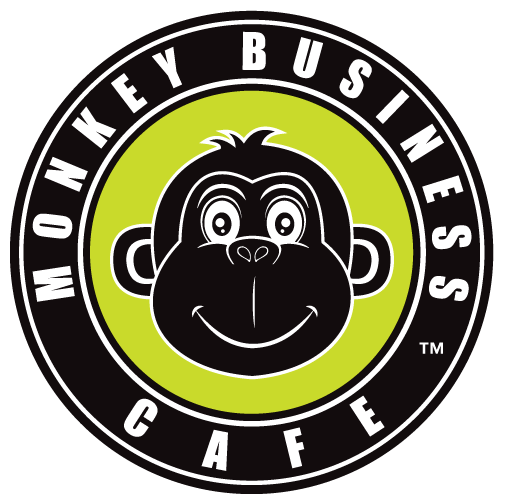
WORKFORCE
"Our goal is to prepare individuals to successfully transition to permanent employment in the food industry or related field."
Monkey Business Café is a fully operational restaurant and catering enterprise that serves as a work experience/job training site for emancipating foster youth and other at-risk young people.
At our social enterprise, young adults can establish a work history and gain marketable restaurant and business experience in the restaurant field. From busing tables, cashiering and customer service to meal preparation, individuals can learn many aspects of the back of house and front of house operations. Work experience includes participating in our farm-to-table process at the Arboretum and on-site at Monkey Business Café’s test kitchen. Individuals also assist in catering and product line development. Each participant earns a SafeServ® certificate and develops a resume reflecting the skills they developed. Our program offers paid employment and life-skills training for approximately 35 young people annually. Our goal is to prepare individuals to successfully transition to permanent employment in the food industry or related field.
Proceeds from the restaurant are reinvested into the operations to support workforce training and mentoring activities, allowing the restaurant to employ at-risk youth and young adults, as well as to provide the relatively high staff ratio needed to supervise and coach program participants. The social enterprise project complements the agency's residential services for adolescent boys who are in foster care, giving them an opportunity to develop work and life skills in a supportive environment.
Population Served: The population we serve is one of the most vulnerable groups in society: young people who have aged out of the foster care system and are on their own with few, if any, supports or guidance. Our program serves our own residential graduates as well as vulnerable youth and young adults referred to us from public and private agencies. All of our program participants are experiencing a highly challenging existence: at or below 100% of poverty, near or actual homelessness, food insecurity and a lack of other basic needs. Our goal is to give them a chance to stabilize their lives, develop marketable skills, and pursue a pathway for career, college or both.
The Orange County Grand Jury1 reports that within 12-19 months of emancipation:
- 50% of emancipated foster youth were unemployed and had been homeless
- 37% has not finished high school
- 27% of males and 10% of females had been incarcerated
- 33% were receiving some form of public assistance
- 45% were involved in out of wedlock birth
Research on California's youth leaving foster care finds:2
- Only a third had drivers' licenses, fewer than four in 10 had at least $250 in cash, and less than a quarter had dishes and utensils with which to set up housekeeping
- Foster care alumni experience post-traumatic stress disorder at a level that is five times that of the general population (21.5%)
- 46% have not completed high school
- Only 20% of foster youth who complete high school even begin to pursue postsecondary education (compared with 60% of their peers), and of those less than 3% attain a college degree (compared with 24% of the general population)
- 65% emancipate without a place to live
- Foster children comprise less than 0.3% of the state's population, and yet 40% of persons living in homeless shelters are former foster children
- Emancipated foster youth earn an average of $8,400 per year, a number well below the national poverty level (the self- sufficiency standard for a single adult with no children in Orange County is $32,912 per year)3
2(Pecora, P., et al. (2005). Emancipating Foster Youth: Key Highlights from the Research)
3Center for Community and Economic Development; 2014; Self-Sufficiency Standard Tool for California; Hook, J., Partners for Our Children; University of Washington; 2010).

View Catering Menu